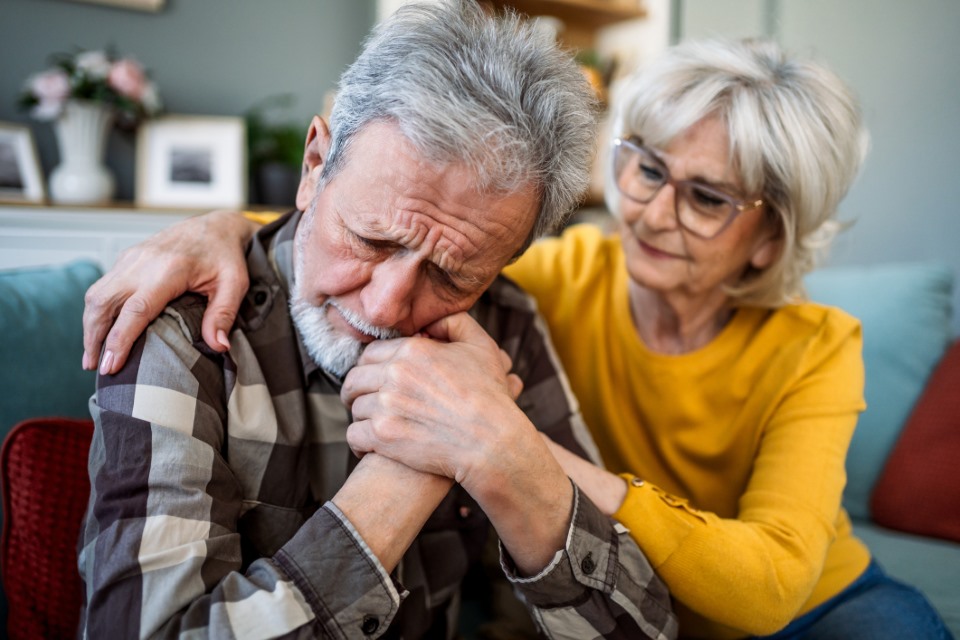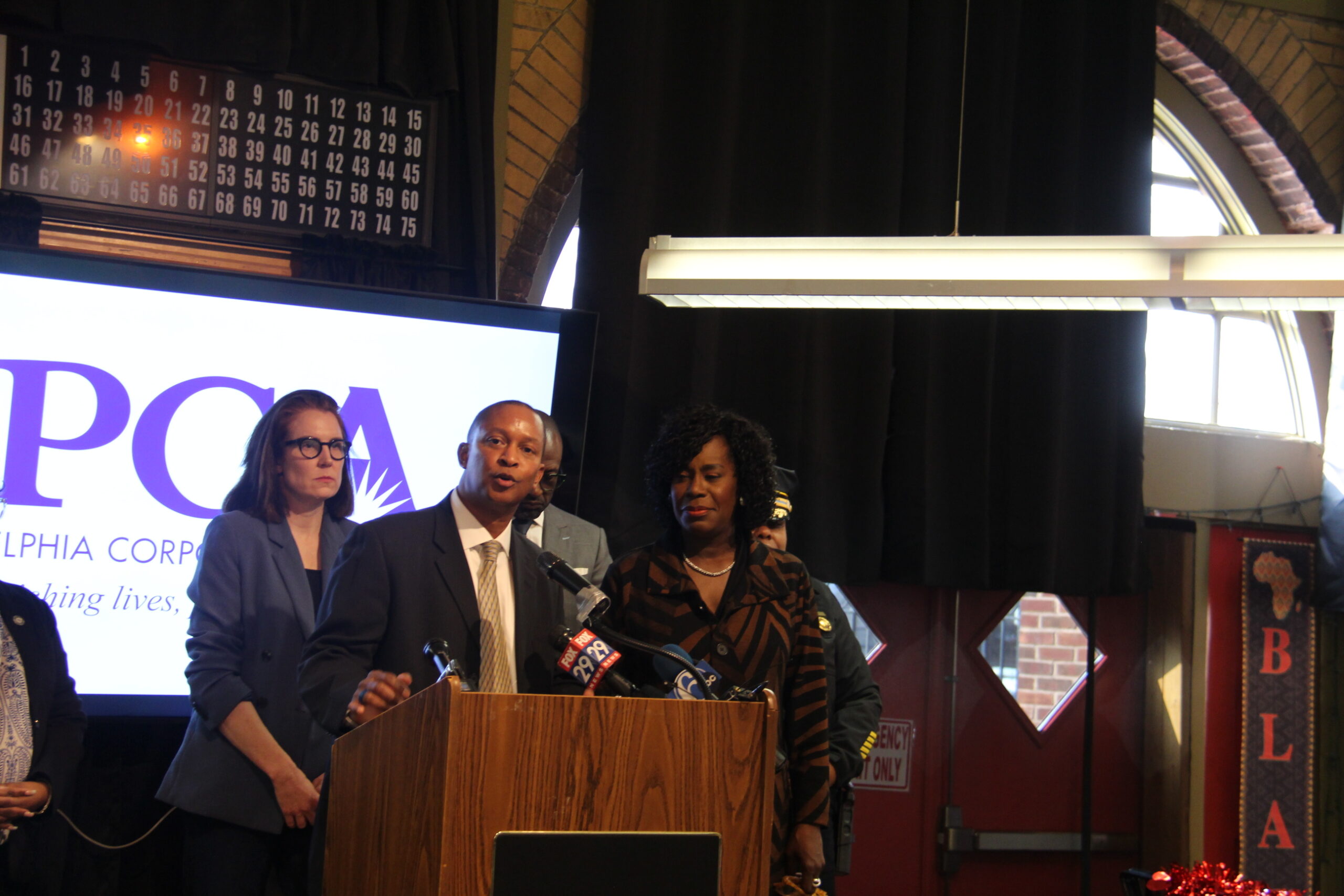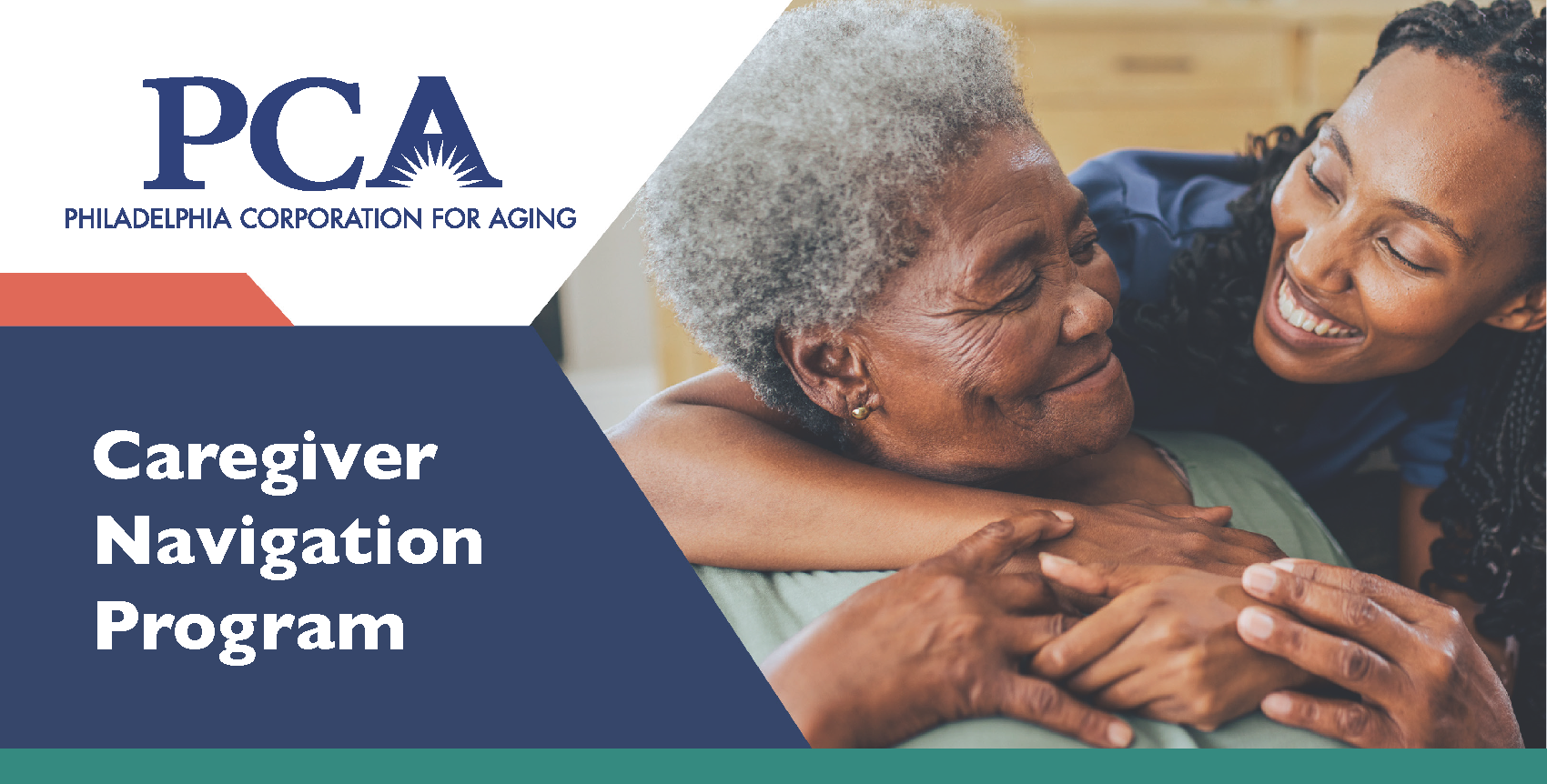Understanding mental health conditions in older adults
By Mary Anna Rodabaugh
More than 20% of adults older than 60 experience a mental health or neurological disorder, according to the Alliance for Aging Research. Common conditions include depression and anxiety. But several other mental health conditions also require proper attention and monitoring.
Many symptoms of psychiatric disorders can mimic those of cognitive and physical health issues. Thorough evaluations are critical to properly diagnose and treat mental health conditions. Changes in mental health are not a normal part of aging. Any concerning behaviors or symptoms should be discussed with a health care provider.
“Older years of life can be fulfilling and rewarding. But psychiatric disorders can sometimes develop during those years,” said Dr. James Ellison, psychiatrist at Jefferson Health. “These disorders are treatable, and people should try to overcome the stigma to seek help.”
Stigma is often fueled by the unfair assumption that older adults experience significant cognitive decline. This harmful stereotype can prevent many people from seeking the care they need.
Schizophrenia
Schizophrenia is a mental health disorder that changes how a person thinks, feels and behaves. It can cause delusions, hallucinations and disorganized thinking.
While schizophrenia often develops during young adulthood, older adults can experience late-onset schizophrenia. According to the Institutes of Health, 15-20% of all schizophrenia cases are classified as late-onset schizophrenia, which typically develops in individuals aged 45 or older.
Older adults with late-onset schizophrenia may not hallucinate as frequently as younger patients. They may also experience fewer severe symptoms that affect their safety or daily functioning.
“More typically, older adults experience persistent beliefs that people are trying to harm them and may struggle with relationships,” Dr. Ellison said.
These symptoms can become severe and require intervention. Treatment may include medication, group therapy and structured day programs.
Bipolar disorder
Bipolar disorder is a mental health condition that involves shifts in mood, energy and activity levels.
These include emotional highs (mania or hypomania) and lows (depression). While the disorder usually begins in young adulthood, it can also develop later in life. In younger adults, bipolar disorder carries a higher risk of suicidal behavior.
In older adults, the risk of suicide is lower.
Symptoms also present differently based on age. Younger patients may show risky behavior and elation. Older adults often experience irritability more than euphoria.
“The long-term course of bipolar disorder is associated with impaired psychosocial functioning, increased medical illness, cognitive decline, higher risk of dementia and increased mortality,” Dr. Ellison said.
Symptoms include sleeplessness, impulsive behavior (such as overspending or reckless driving) and irritability. Importantly, these behaviors may also stem from medical conditions, including stroke or dementia. The condition is treatable. Obtaining a professional evaluation is crucial for accurate diagnosis and treatment.
Borderline personality disorder (BPD)
BPD is a mental health condition that affects emotional regulation. BPD is typically diagnosed after age 18. It was once thought to “burn out” after age 50. But this is no longer believed to be the case.
“In older adults, the condition can persist,” Dr. Ellison said. “The most severe and self-harming patients may not have survived into older adulthood. We now see different symptoms: depression, profound unease and disturbances in interpersonal relationships.”
Life experience, stable relationships, employment and psychotherapy can help manage BPD. While symptoms can lessen, the condition rarely disappears.
Determining root causes can be challenging. Dementia, PTSD, bipolar disorder or substance abuse may mimic BPD symptoms. Patients with mood disorders often develop overlapping personality disorders, making professional evaluation essential.
The challenge
Many early symptoms of psychiatric conditions mirror those of dementia, which complicates diagnosis. Consulting a health care provider is the first step toward treatment.
“I think people with bipolar disorder have a higher rate of self-recognition that something is wrong and that their moods are unstable,” Dr. Ellison said. “They are more inclined to seek help. However, people with personality disorders or delusions are more likely to blame others.”
Awareness is essential. With proper care, treatment and support, older adults can enjoy happy and healthy lives.
Mary Anna Rodabaugh is a writer, editor and writing coach.
Mental health resources

Philadelphia offers a variety of mental health resources. These include crisis hotlines, counseling services and community support organizations.
- 988 Crisis Line: Call or text 988 for 24/7 support. This service is free and confidential, providing immediate assistance and resources.
- Department of Behavioral Health and Intellectual DisAbility Services: This city department provides a range of mental health services for adults and children. These include consultations, referrals and crisis intervention. A 24-hour Mental Health Delegate Line is available for immediate support at 215-685-6440.
- www.HealthyMindsPhilly.org: An online resource that offers tools for mental health counseling, online screenings and mental health first aid training. The site focuses on community engagement and provides information on local events and services.
- The National Alliance on Mental Illness (NAMI) Philadelphia offers support groups, educational resources and advocacy for individuals affected by mental illness. NAMI provides free mental health support, as well as online support groups and classes. Text “NAMI” to 741741 for 24/7, confidential, free crisis counseling. If you are feeling down, and would like to chat to a NAMI Philly Peer or Family Member, call the Warmline at 1-844-PHL-HOPE. For information, https://namiphilly.org.
- The Merakey Mental Health Walk-In Clinic is Philadelphia’s first behavioral health urgent care designed to provide same-day, non-emergency mental health services to adults. The clinic is open to everyone, age 18 or older, regardless of insurance status or ability to pay. Located at 3125 N. Broad St., near Allegheny Ave., the clinic is open daily, from 11 a.m. to 6 p.m. For information, call 267-219-8801.




